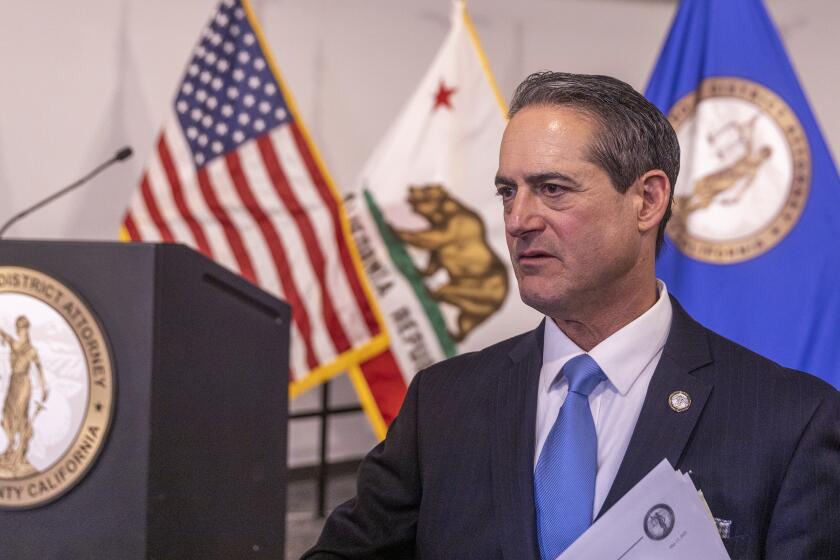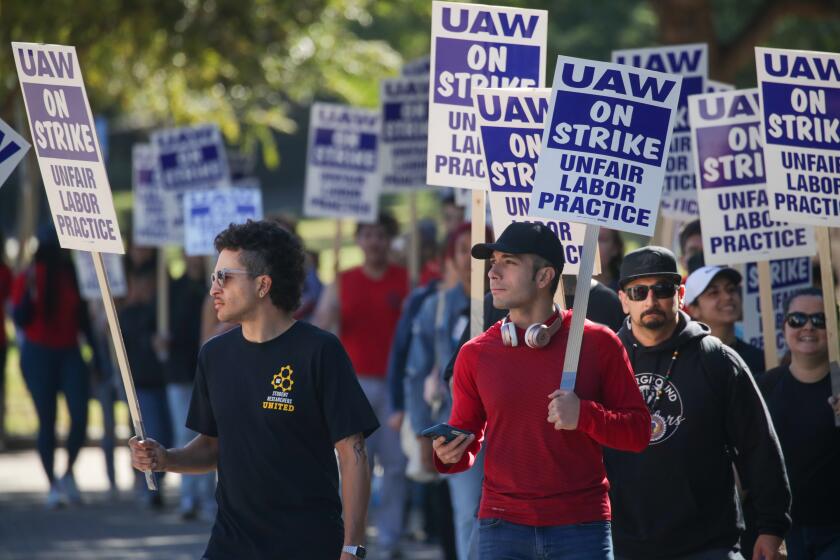Glendale Loses Bid to Block Suit Over Hills Project
Glendale’s effort to kill plans for a large hillside subdivision lost ground this week when a judge ruled that a lawsuit brought by the developer has sufficient merit to proceed toward trial.
John L. Gregg, who wants to build a 572-home luxury tract in the Verdugo Hills, filed suit after the City Council unanimously voted down the project in April. Council members said the 238-acre Oakmont development would pollute the air, harm wildlife and destroy scenic vistas.
On Thursday, Los Angeles Superior Court Judge Rodney Nelson rejected the city’s request to throw out the lawsuit. City attorneys contended that Gregg could not prove Glendale officials had done anything illegal or improper in denying permission to build.
Gregg’s attorney, Robert McMurry, said the judge’s ruling bolsters his contention that the city “so strictly regulated our property that we can’t reasonably use it.” Since the 1980s, a string of court rulings has held that government actions diminishing property value amount to illegal “takings” of the property.
Deborah J. Fox, the lead attorney for the city, said she still hopes that she can get the case thrown out before trial. “This is just the beginning of a long land-use dispute,” she said. “California courts have held that you are not entitled to an overly ambitious level of development.”
Councilman Dave Weaver said Friday that the judge’s decision had not changed his belief that Gregg’s proposal is too large and would be too destructive to the environment.
The builder’s argument that he can’t reasonably use his property “is totally untrue,” Weaver said. “He’s putting in maximum density. He can develop it, but not to the density he wants.”
Construction of the houses would mean filling in a canyon several hundred feet deep, which would obliterate a stream, the councilman said.
Gregg’s lawsuit does not specify the amount of damages to be sought during trial, but McMurry said it would be “in the tens of millions.” No trial date has been set.
Hundreds of people opposing Oakmont packed the City Council chamber last spring when the council held an 11-hour hearing on Gregg’s proposal.
McMurry argued to Nelson that Glendale had refused to give fair consideration to the project in the 10 years since it had been submitted. Gregg has offered several alternatives, including one with as few as 90 residential units, but the city “refused to tell us what level of development it would permit,” he said.
Preservationists persuaded state lawmakers to allocate $8 million to buy the Oakmont tract for open space. McMurry said that falls short of its value of $40 million to $50 million.
More to Read
Start your day right
Sign up for Essential California for news, features and recommendations from the L.A. Times and beyond in your inbox six days a week.
You may occasionally receive promotional content from the Los Angeles Times.






